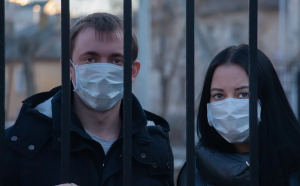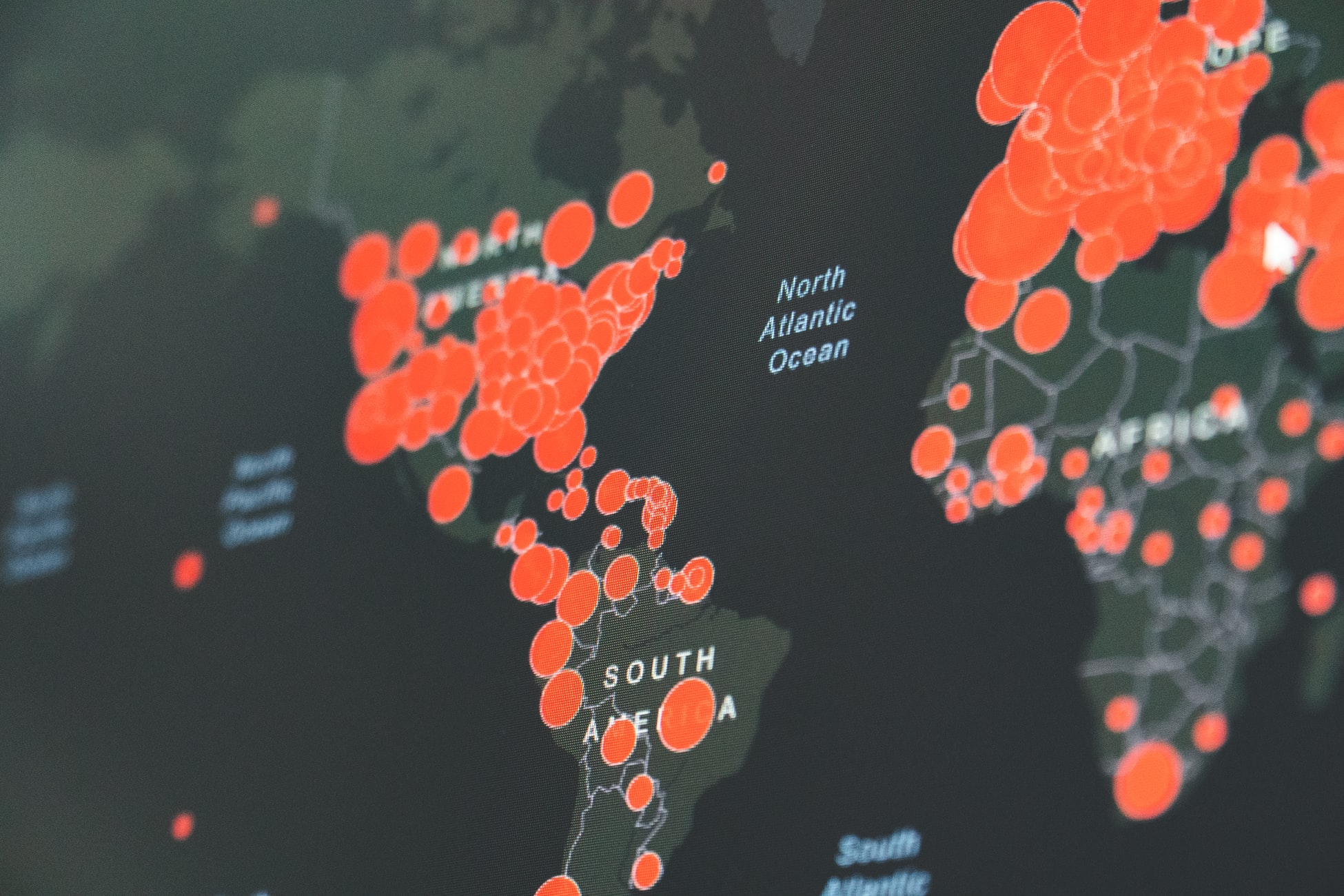Most of the people who get infected with coronavirus will fully recover. In fact, many of them wouldn’t even need hospitalization.
We are living in a pandemic. It’s not something most of us ever thought we’d ever had to experience. Some parts of the world have locked down their borders. People are canceling their trips after having been warned by health officials about the dangers of traveling to countries where there have been cases. Traveling is not something that’s advisable due to the coronavirus outbreak.
But what about that trip you’ve already booked using a year’s savings? You’ve been looking forward to it for so long. Or, as some people are doing, you’re thinking about taking advantage of the really low prices of airfare and hotels right now due to the pandemic. Is there such a thing as a safe trip during the coronavirus outbreak?
About the COVID-19 Outbreak
Before we get into traveling during a pandemic, let’s first clarify what exactly is the COVID-19 outbreak. COVID-19 is short for CoronaVirus Disease 2019. It is an infectious disease that is caused by a recently discovered coronavirus. It is a respiratory illness that can easily spread from person to person. The novel coronavirus was first discovered in Wuhan, China after it caused an outbreak in the province.
The virus spreads mainly through close contact with another person – within a range of 6 feet. When an infected person coughs or sneezes, respiratory droplets are produced. When those droplets land in the mouth or nose of another individual or get inhaled into the lungs, then it may cause you to get infected. Scientists believe that a person can also get infected when he or she touches a contaminated surface or object and then touches their eyes, nose, or mouth. Based on the number of cases worldwide, it is believed that this virus is highly contagious and can spread sustainably in the community. This means that some people have been infected with the virus without knowing how or where they became infected.
What are the Symptoms?
Individuals with COVID-19 can experience some of the severe symptoms of respiratory illness such as:
- Low-grade fever that increases in temperature over time
- Dry cough that may become severe over time
- Shortness of breath
- Tiredness
- Sore throat
Is It Safe to Travel?
The answer to this question is not so simple. The US federal government, along with governments of several other countries, have been advising their citizens to stay at home and limit their activities outside the home to only the essentials. Travel, in any form right now, is not going to be completely risk-free. It doesn’t matter how old you are, how good your health is, or even where you’re planning ongoing. The number of deaths due to the coronavirus seems to be relatively low when compared to the number of actual cases, and it’s entirely possible that you’ll be completely safe on your trip. But before you even think about stepping out of your front door, there are some factors that you need to consider. You know, if you’re serious about coronavirus prevention.
How Old are You?
Senior citizens, particularly those over 80 years old, are the ones who are most vulnerable to the coronavirus disease. Fatality rates for younger individuals, ages 10 to 39, are very low at an estimated 0.2%. That being said, your age does not guarantee that you won’t get the disease. It’s still possible for you to become infected. It’s also possible that you’ll end up spreading the disease around if you’re not careful.
What’s Your Medical History?
Individuals who have pre-existing conditions such as heart disease, diabetes, cancer, and asthma are more likely to experience severe symptoms compared to those who are in generally good health. The same thing applies to individuals who have a compromised immune system. If you belong to either category, the best coronavirus prevention strategy for you is to reconsider your travel plans.
Is COVID-19 Spreading in the Place Where You’re Going?
There are numerous hot zones around the globe – places where there are thousands of reported cases. It would be wise to delay your travel to those places unless it is extremely essential. However, that doesn’t mean that you should consider traveling to areas where there are only a small number of cases. Your chances of getting infected are still going to increase than if you’d simply stay at home, especially if your area still has no reported cases.
Will You Be in Close Contact with Others During Your Trip?

As mentioned before, coronavirus is spread through close contact. One of the coronavirus prevention methods is to avoid crowded places. If you’re going to be in crowded settings, particularly in places where you will be in an enclosed space with little air circulation, then you may want to reconsider. These settings include public transportation such as buses and airplanes, and public spaces such as movie theaters and sports centers.
Are You Willing to Go Into Self-Quarantine for Two Weeks After You Return from Your Trip?
If you go to an area where there are a high number of reported cases, it’s highly likely that you’ll be asked to go into self-isolation for 14 days upon our return even if you don’t have any symptoms of the disease. This means that you will be unable to go to work, school, or have contact with family members until you have proven to be noninfectious.
Coronavirus Prevention: How to Stay Safe
Depending on your personal circumstances, you may choose to push through with your travel plans. If that’s the case, your next question should be what to do if traveling during the coronavirus outbreak. How do you minimize the risk of getting infected during your travels? Below are some coronavirus prevention and travel safety tips that you can use to protect yourself:
In the Airport
All “discretionary travel” on airplanes whether it’s international or within the US is considered ill-advised by the medical experts. This is because airports and airplanes are crowded places that increase your chance of contracting the disease.
That being said, if your travel is really essential, you should make sure to practice social distancing. This means staying at least a meter (3 feet) away from everyone. Remember, some people can carry the virus but be asymptomatic (showing no symptoms). Avoid getting infected and potentially spreading the disease further by keeping your distance from others.
Another good practice is to keep your hands clean. This means washing your hands frequently with soap for a minimum of 20 seconds after you leave the airport. If you can’t wash your hands right away, you can use a hand sanitizer gel that has a 60% alcohol content (minimum) to disinfect your hands and wrists. Make sure to avoid touching your face, especially if you haven’t cleaned your hands thoroughly.
Clean objects that are frequently touched by people using a cleaning spray or medical-grade disinfecting wipes. This allows you to sanitize the things you’ll come into contact with during your time in the airport such as door handles, your seat, bathroom faucets, tables, and countertops.
On an Airplane or Train
Before we get to the travel safety trips, it’s important to note that coronavirus is not airborne which means that you don’t have to worry about the virus getting spread through the airflow system of the plane or train. In addition to that, these modes of transportation often have systems that filter air using a HEPA filter. In short, it’s not the air inside the cabin you have to worry about.
However, on a plane or a train, you’re likely to be sitting near someone and would have a hard time practicing social distancing. But what you can do is to stay two seats away from someone who is ill. If someone sitting beside you is coughing or sneezing, don’t be shy about requesting another seat.
Similar to what you’d do in the airport, make sure that you frequently wash your hands after you touch any surfaces in the airplane or train. If you can’t, make sure to disinfect your hands with a hand sanitizer gel or antiseptic hand wipes. Take note that medical-grade disinfecting wipes are not applicable for skin use. But they would work perfectly for sanitizing your seat, armrests, remote controls, and even your tray table.
On the Bus
One way to stay safe is to stick to traveling on the bus during less busy times when there are fewer people who would be traveling with you. This enables you to keep the required distance from others. Disinfecting your seat and anything else you touch is also applicable here such as the bars that you grab hold on to inside a bus. Once you reach your destination, make sure that you wash your hands as soon as possible. Don’t touch your face with unwashed hands.
Conclusion
Most of the people who get infected with coronavirus will fully recover. In fact, many of them wouldn’t even need hospitalization. However, taking precautions isn’t just about personal coronavirus prevention. It’s also about making sure that you don’t pass it on to someone else who might not be able to survive it. So, stay at home. But if you need to travel, make sure to stay safe.


Join the conversation!